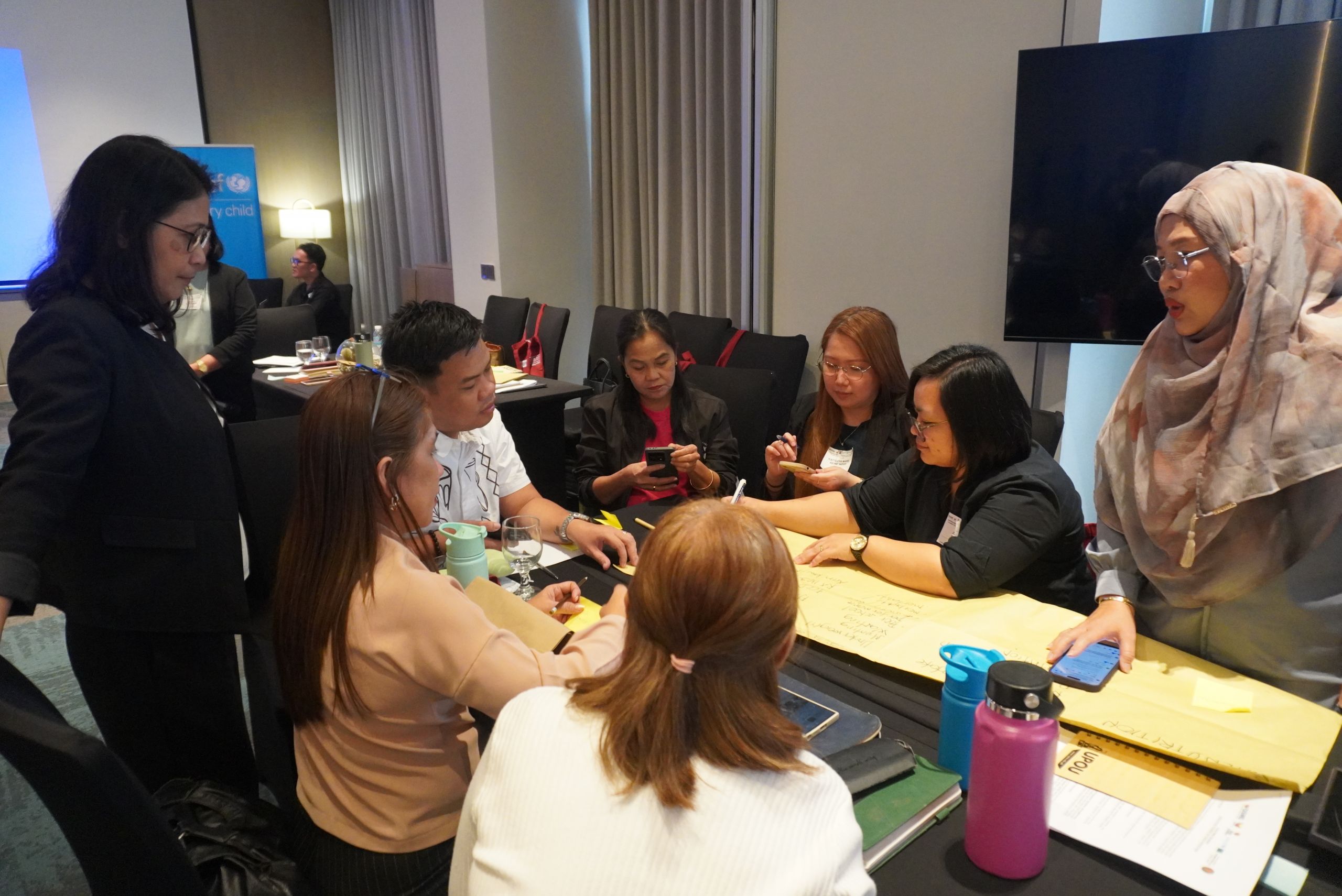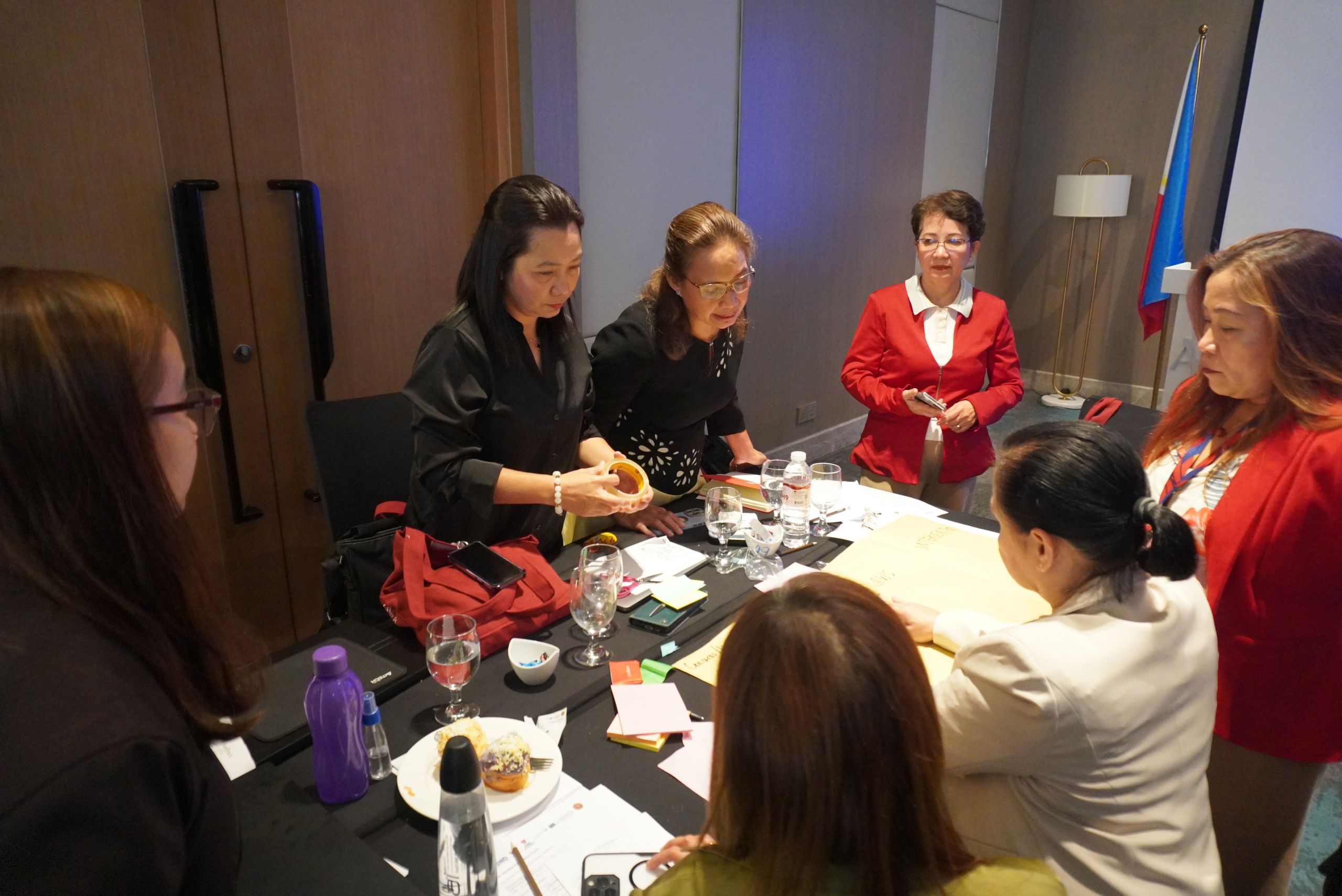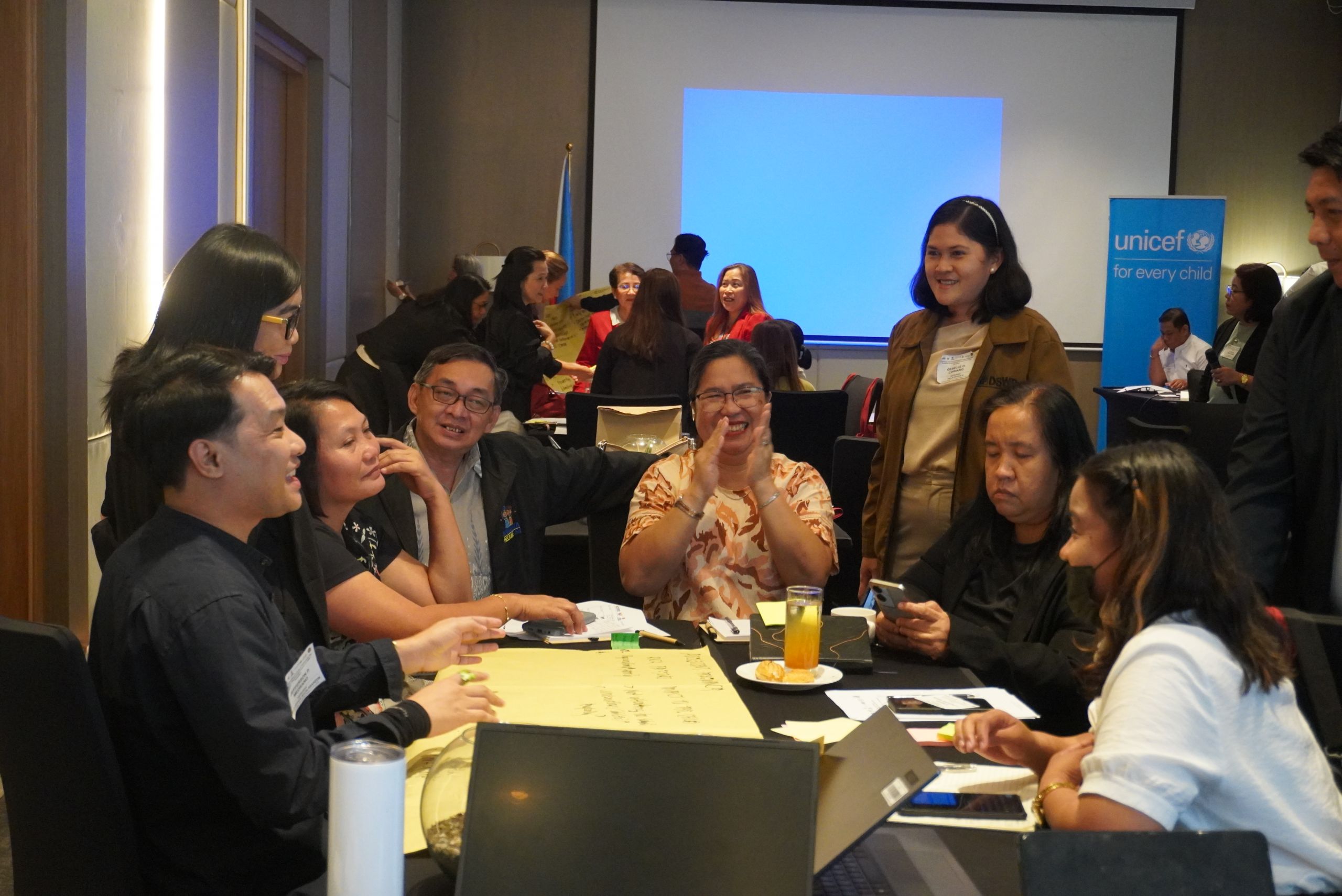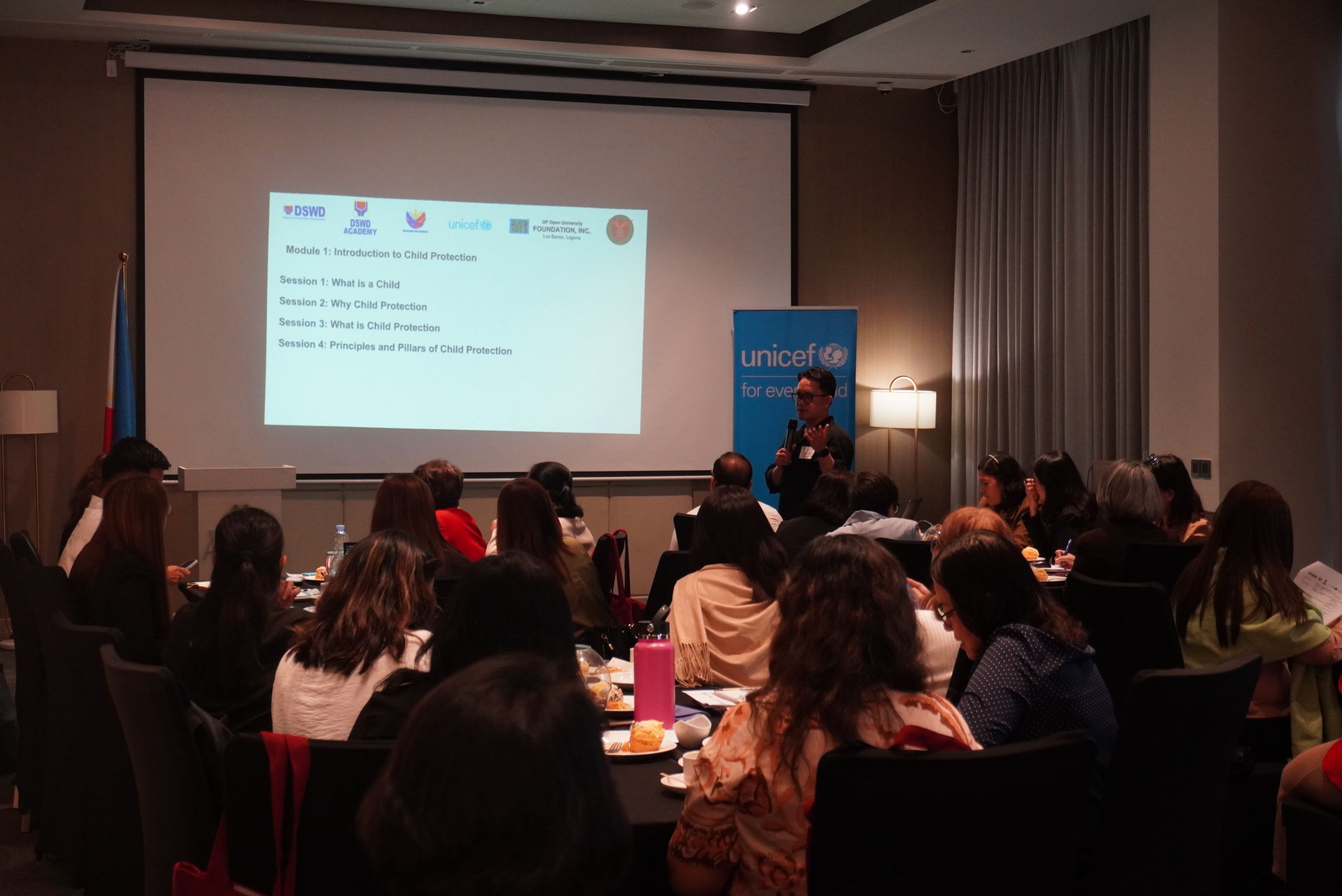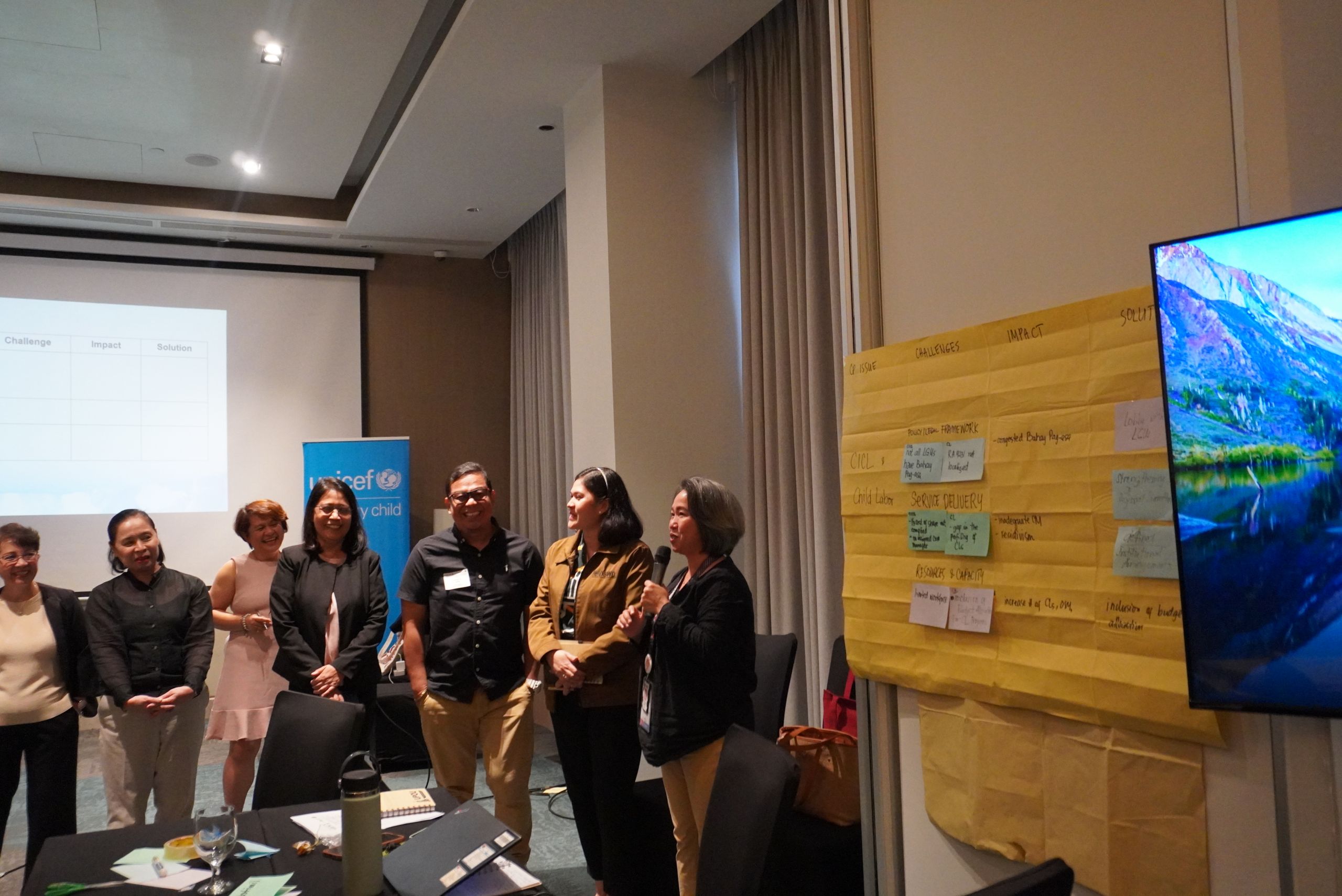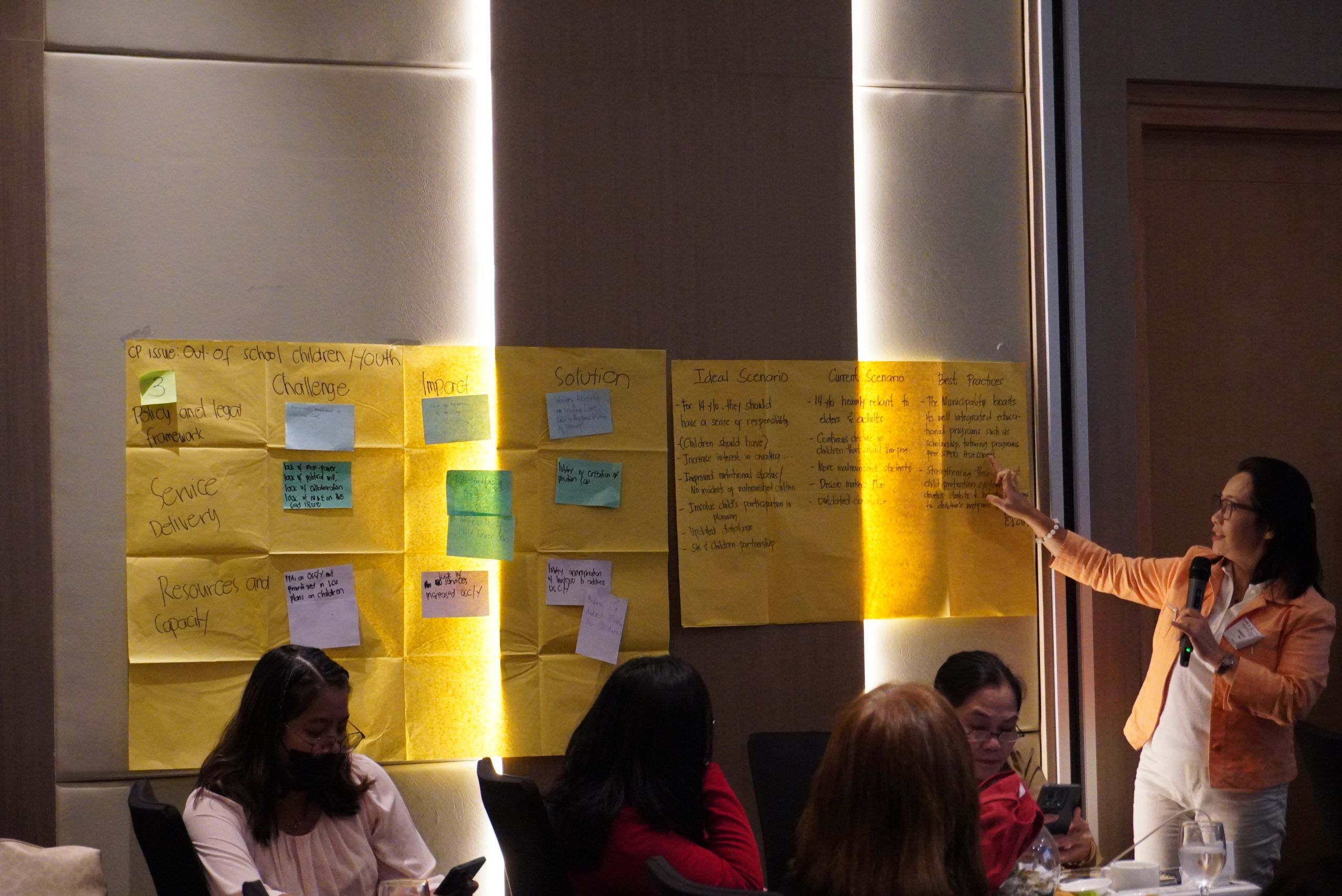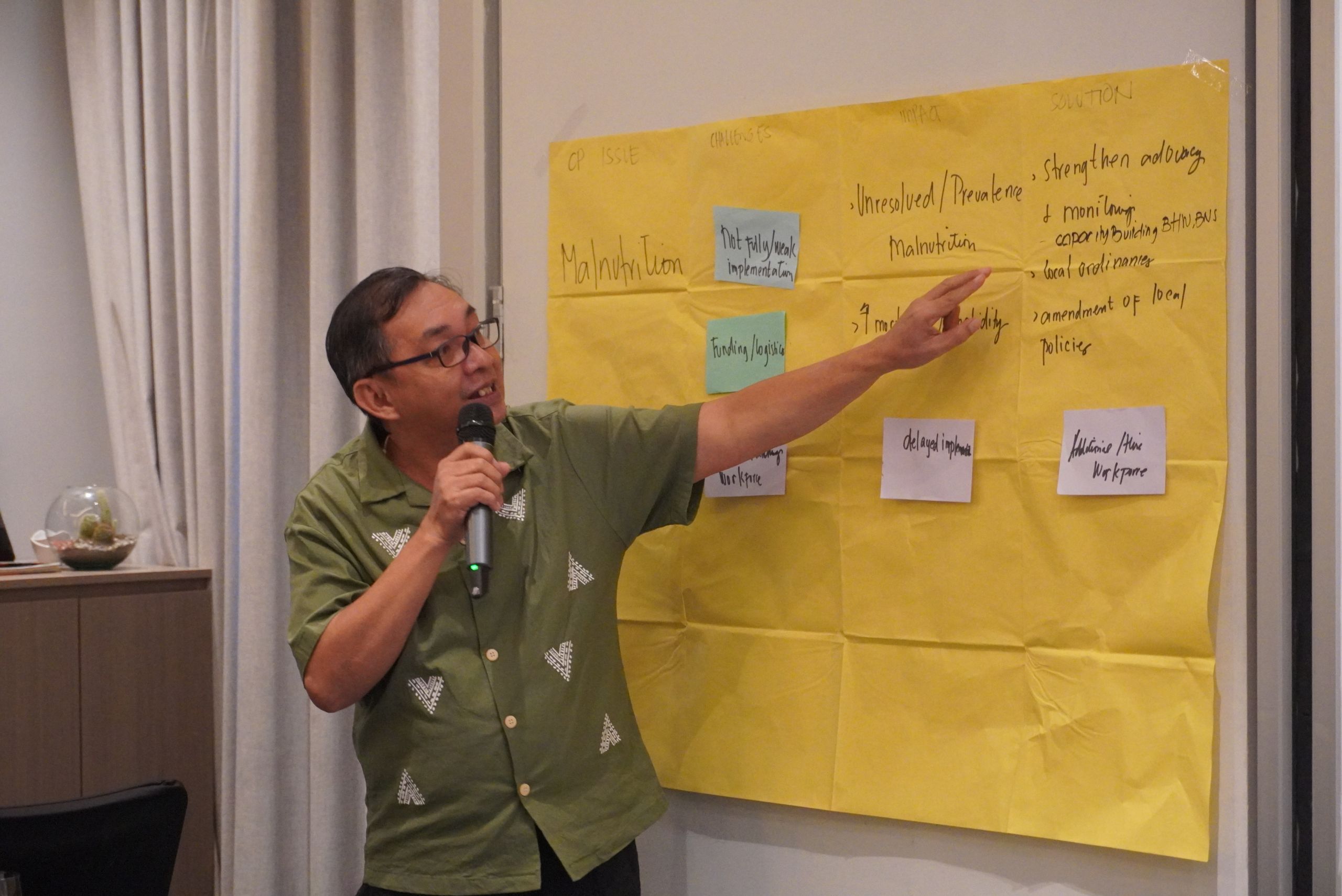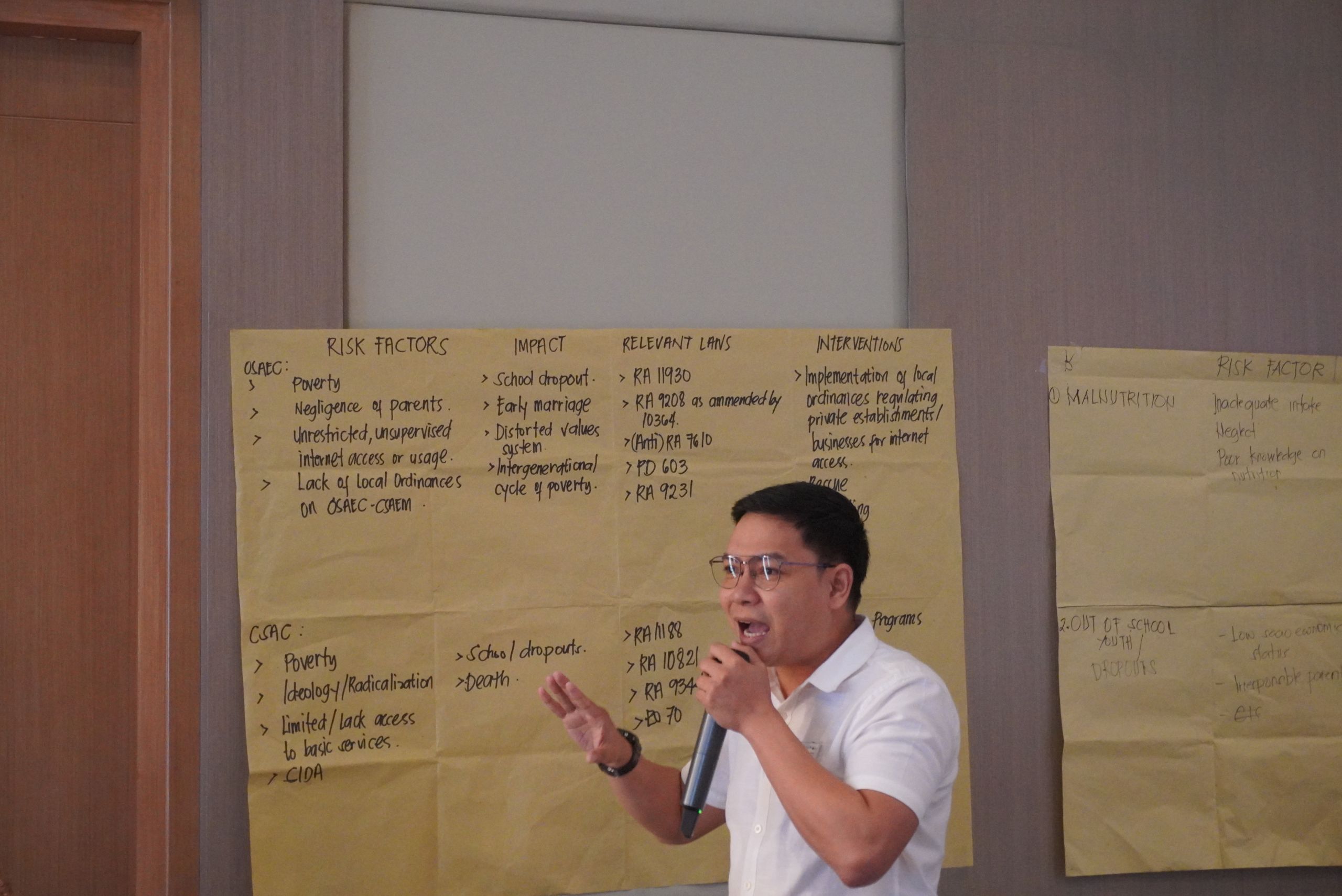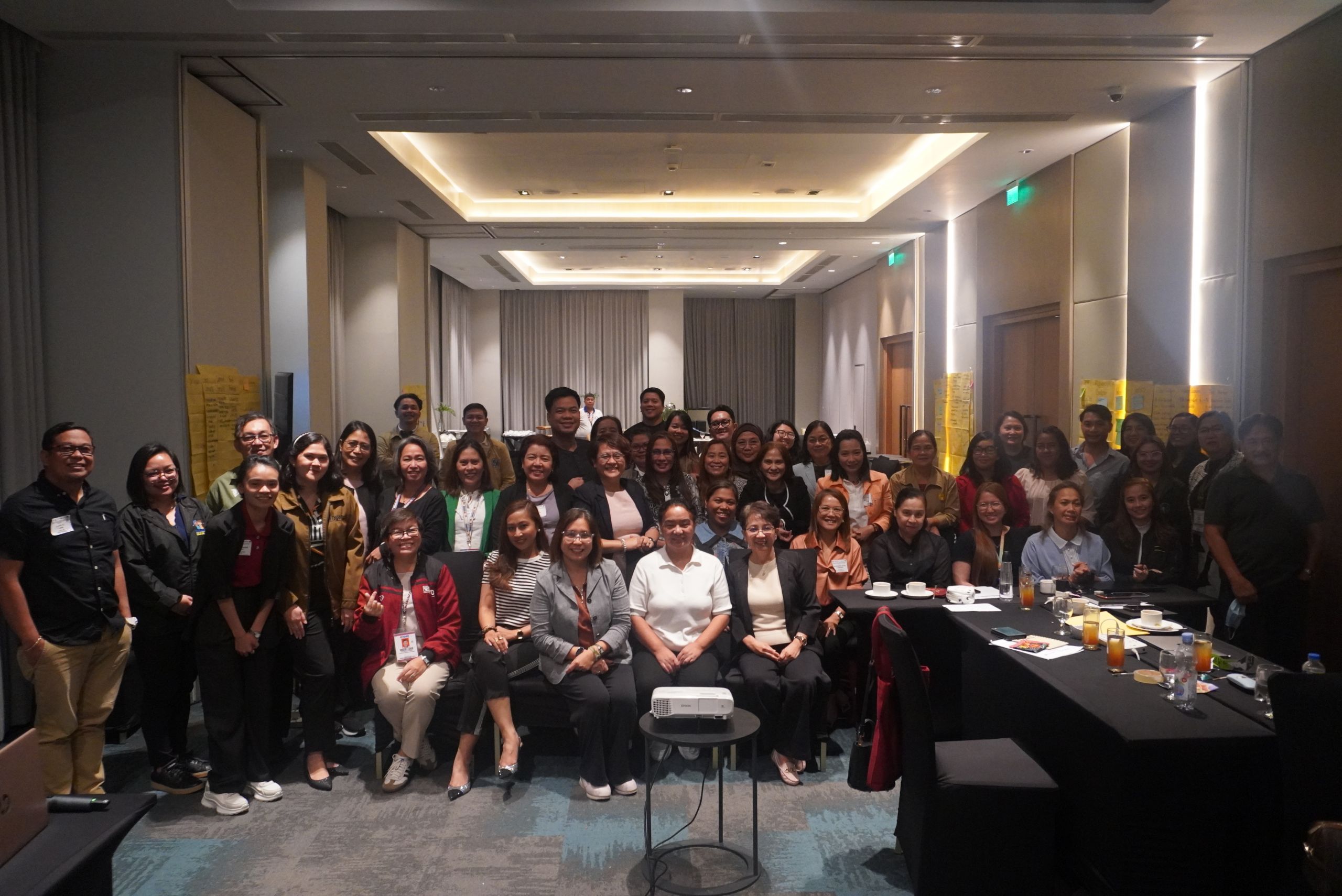
The University of the Philippines Open University Foundation, Inc. (UPOUFI), through the UPOU Faculty of Management and Development Studies (FMDS), conducted a two-day Coaching Session for the Executive Course on Child Protection on 27–28 August 2025. The event gathered key representatives from partner organizations and institutions, including United Nations Children’s Fund (UNICEF) Philippines, the Department of Social Welfare and Development (DSWD) Academy, and DSWD Core Group of Specialists from various DSWD Regional Offices.
Supported by UNICEF Philippines at Citadines Roces Quezon City, the Coaching Session aimed at equipping a pool of facilitators with the skills, knowledge, and confidence to deliver the Executive Course on Child Protection effectively. It also sought to ensure consistency in course delivery while enabling facilitators to adapt the content to their respective local contexts.
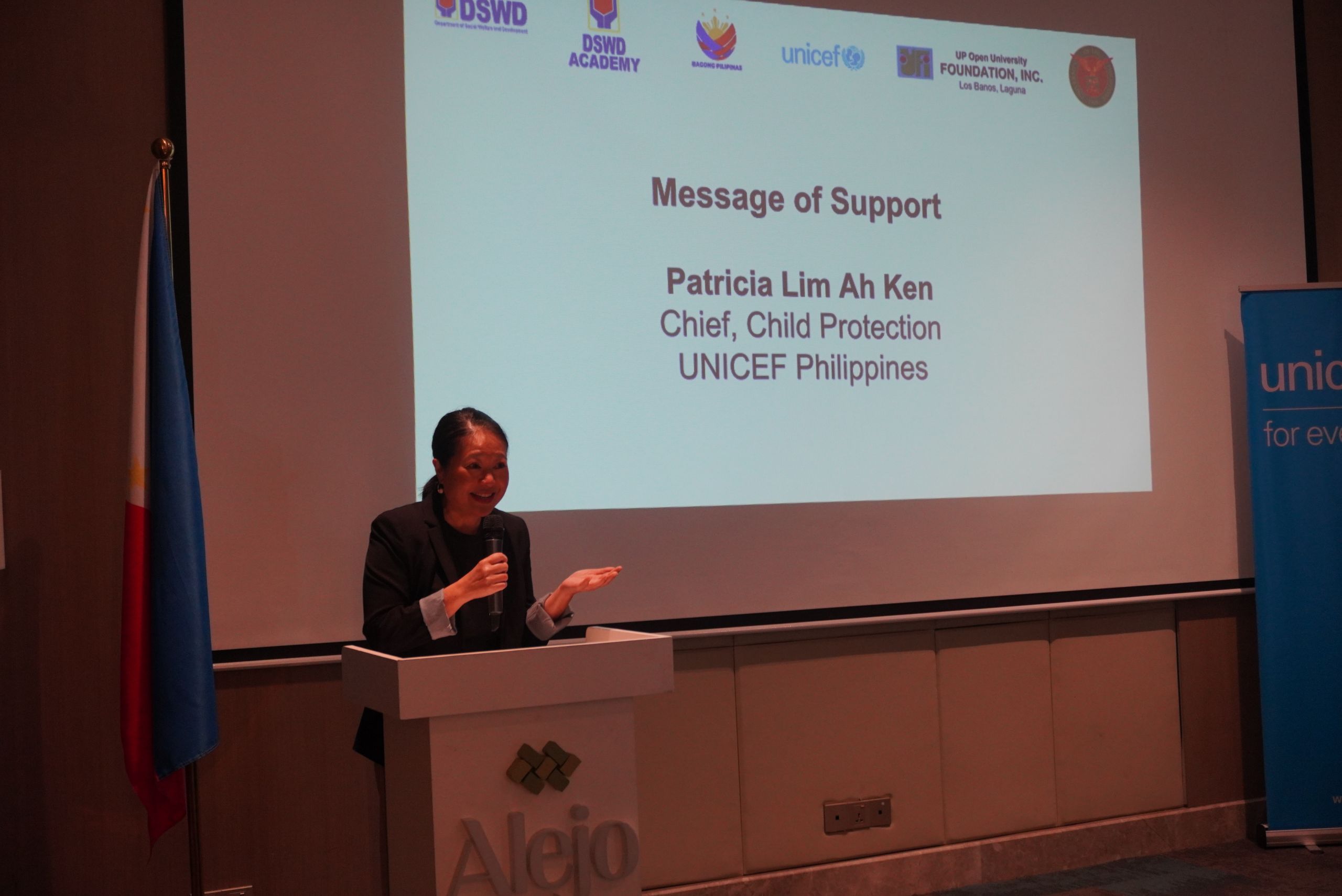
Ms. Patricia Lim Ah Ken, Chief of Child Protection Section at UNICEF Philippines, formally opened the session by welcoming all participants. In her message, she expressed gratitude to partner agencies, commended their collaborative efforts, and underscored the importance of advancing child protection initiatives in the Philippines. She also underscored that the event is a milestone activity in the country which translated a vision of the government’s commitment for child protection at the local level.
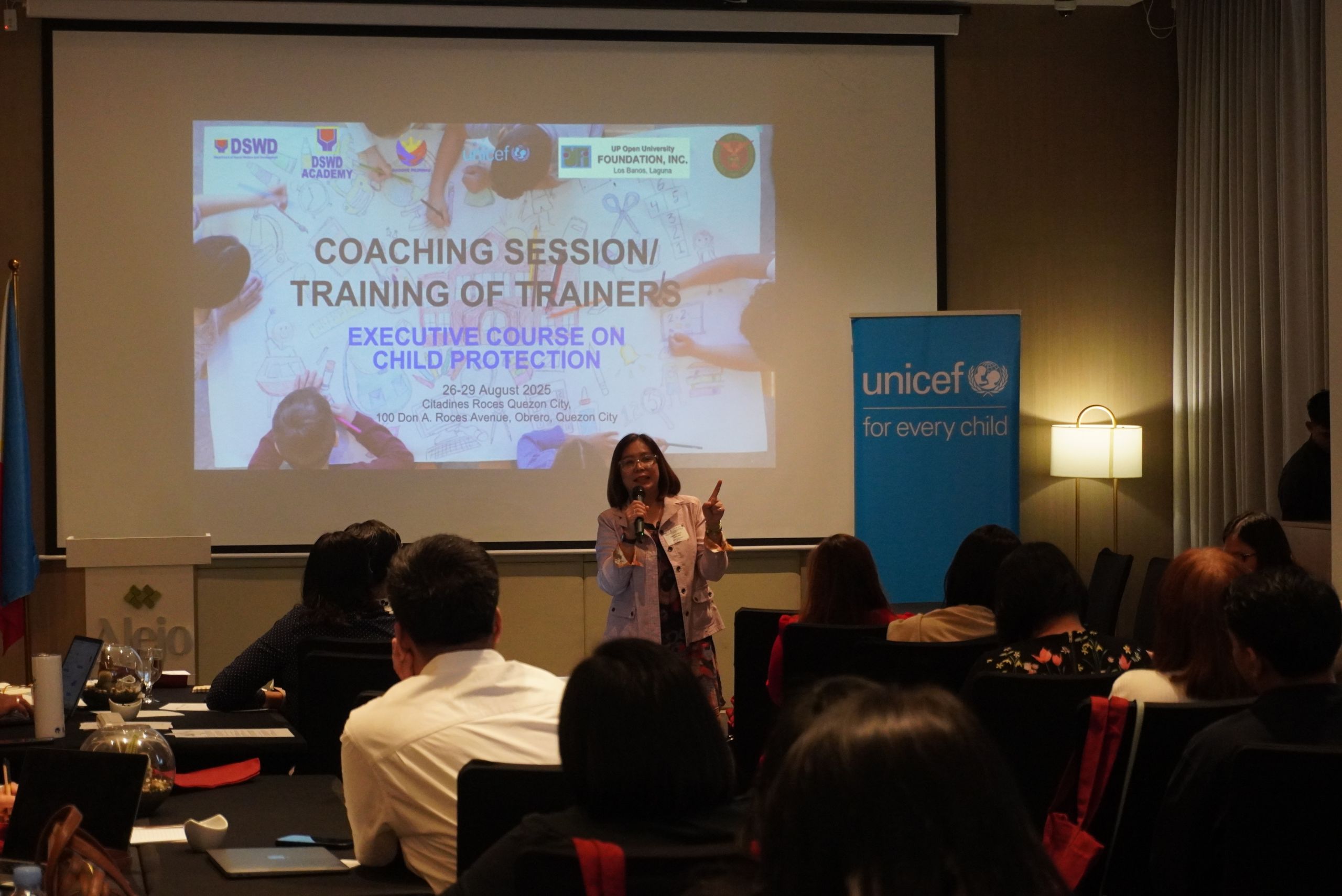
Dr. Finaflor Taylan, the Project Leader, began the session by asking participants about their expectations to make sure everyone was on the same page and clear about the purpose of the activity. In addition, she provided an overview of the Executive Course on Child Protection which consists of four (4) modules. She also explained the objectives, flow, and significance of the Coaching Session as part of the overall training program.
Day 1 – 27 August 2025. Assistant Professor Lloyd Lyndel Simporios led the presentation of Module 1: Introduction to Child Protection. In his discussion, he thoroughly explained the different sessions included in the module, highlighting the key objectives, themes, and the importance of each session. He also walked the participants through the trainers’ notes to provide further guidance on how the sessions are intended to be facilitated. After the discussion on the contents of Module 1, participants engaged in a simulation activity designed to prepare them for the succeeding sessions and to set the tone for collaborative learning.
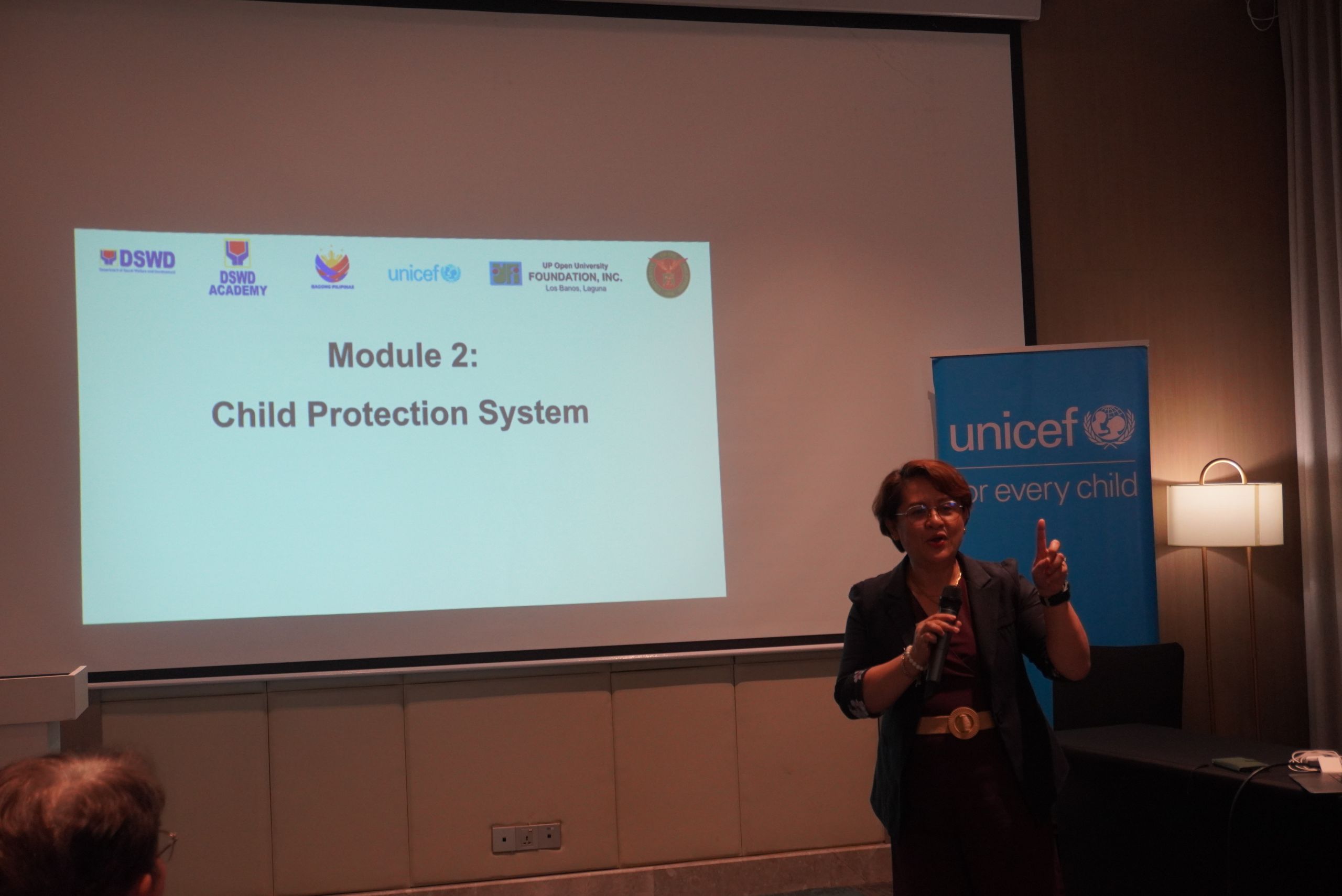
Dr. Maria Lourdes Jarabe facilitated the discussion of Module 2, Child Protection Systems. In her presentation, she emphasized the importance of building and strengthening comprehensive child protection systems that address the needs of children at different levels of governance. She explained that the module is composed of five sessions, each designed to guide participants in understanding the foundations and practical applications of child protection.
Day 2 – 28 August 2025. Dr. Jarabe continued her presentation and in-depth discussion on Module 2: Child Protection Systems. Building on the concepts introduced on the first day, she guided participants through a deeper understanding of the challenges and opportunities in strengthening local child protection systems. After the discussion, Dr. Jarabe facilitated the two simulation activities, one of which is the Springboard Activity titled Analyzing Child Protection Systems: Challenges and Solutions. In this exercise, participants were encouraged to reflect on the current issues affecting child protection in their respective contexts and to propose practical strategies that could address these gaps. As another activity, she also introduced the Child Protection Map – Child Participation activity, which allowed participants to visualize and assess the different actors, structures, and mechanisms involved in ensuring child safety and well-being, while highlighting the role of children’s voices in shaping solutions.
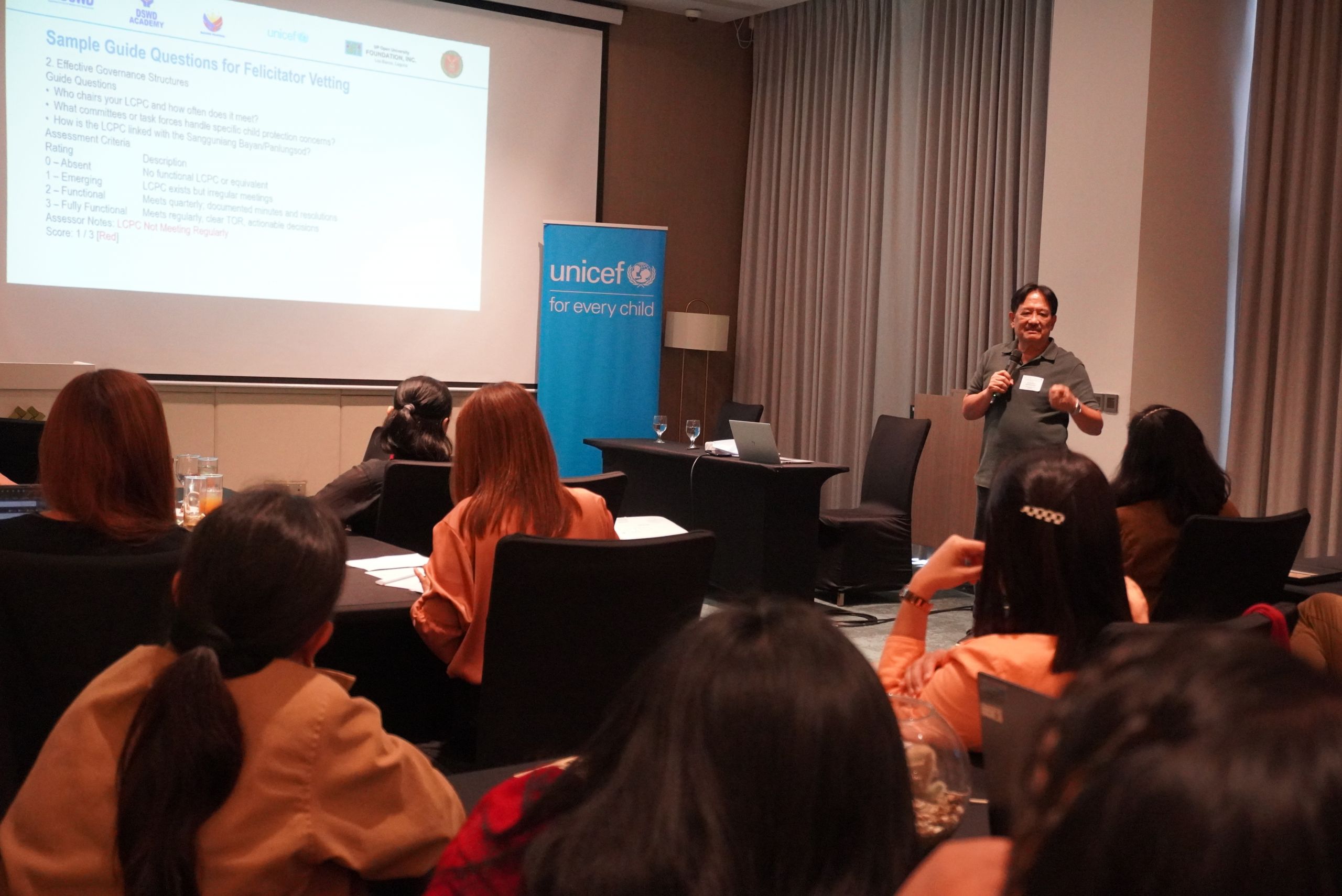
Dr. Augusto Rodriguez presented the third module, Action Planning & Implementation for Child Protection Systems Strengthening, highlighting practical strategies for translating child protection concepts into concrete local actions.
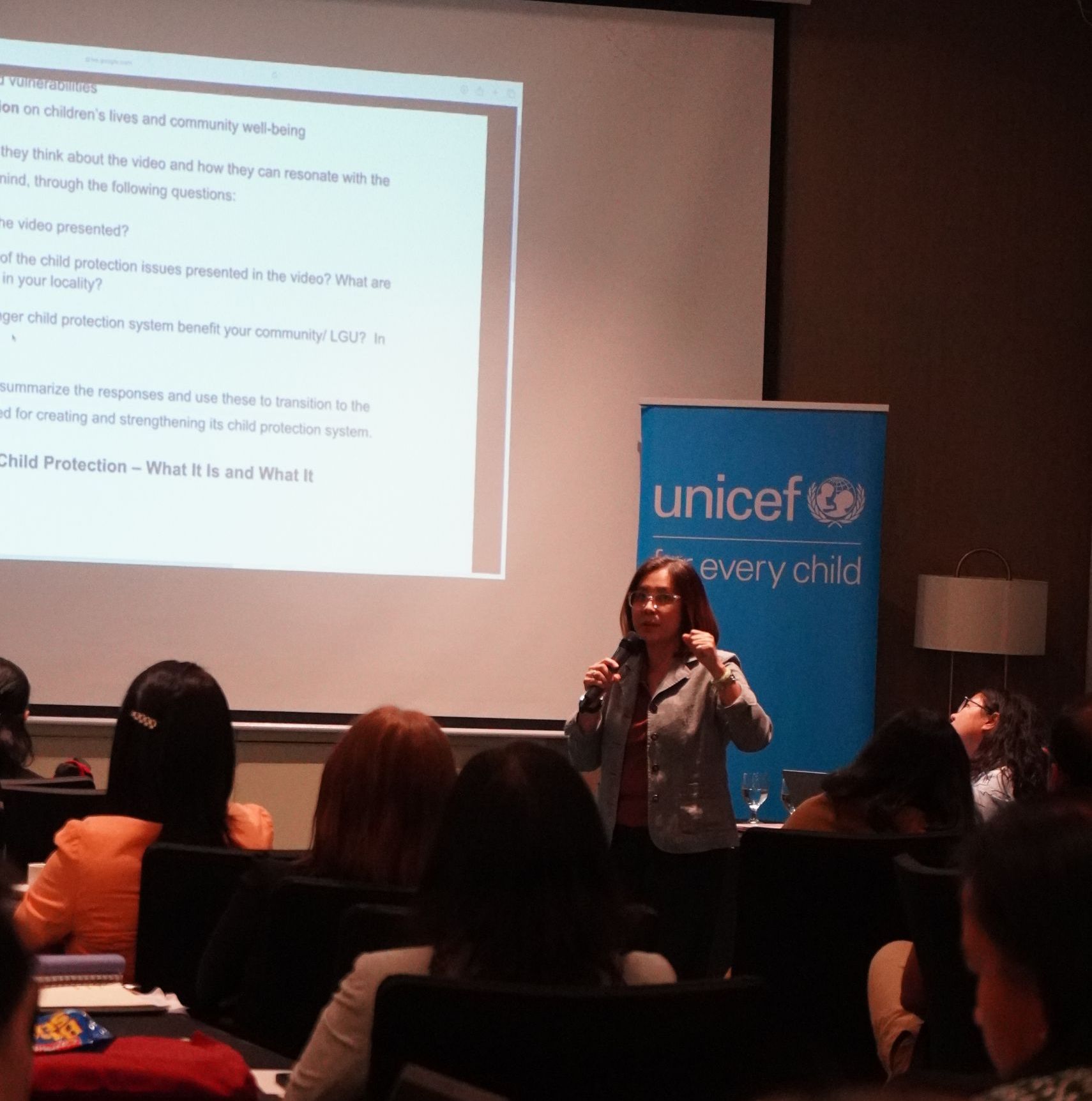
Dr. Taylan introduced the module for the Local Chief Executives (LCEs), which will help LCEs design and sustain a strong and practical Child Protection System (CPS) in their LGUs. The module is guided, using a real LGU case that shows how effective policies and structures can make a positive impact on children’s lives.
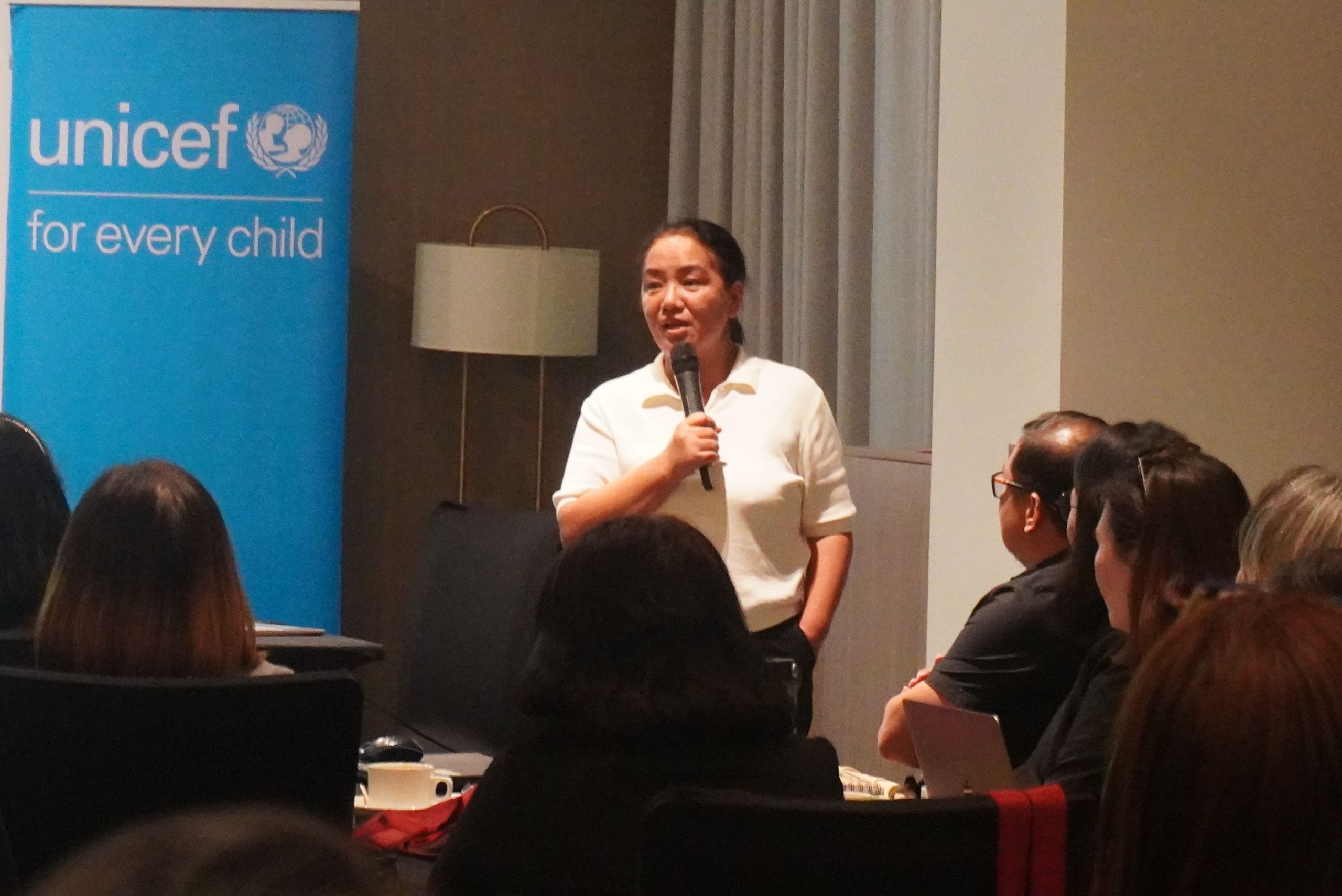
DSWD Assistant Secretary Janet P. Armas concluded the session by reminding everyone to always put children’s rights and best interests first. She thanked the participants for their efforts and encouraged them to continue being child champions.
The next and final step of the project is the actual run of the Executive Course with Multidisciplinary Team members and LCEs as training participants which will be held in September 2025.
This collaborative project is aligned with UPOU’s mission to democratize access to quality education and training. This initiative supports several Sustainable Development Goals (SDGs), including SDG 1: No Poverty, SDG 3: Good Health and Well-being, SDG 4: Quality Education, SDG 5: Gender Equality, SDG 10: Reduced Inequalities, SDG 16: Peace, Justice, and Strong Institutions, and SDG 17: Partnerships for the Goals.
Written by Eunice Laarnie Simon • Edited by Larry N. Cruz

